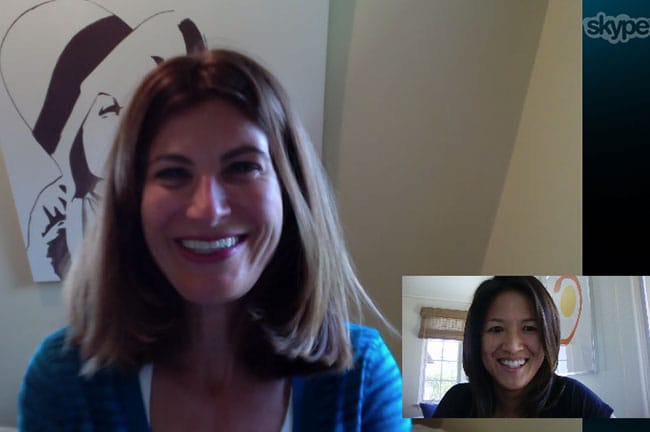You have big goals you want to tackle week after week. Maybe, it’s moving forward on your job search, squeaking out a draft of a business plan or scheduling networking meetings. As each day passes, these items are still on the top of your to-do list, staring you in the face.
You are not alone. We have all fallen victim to our endless lists of projects and tasks, big and small. Sometimes, we need some encouragement, and sometimes we need a swift kick in the derrière to keep moving forward.
If this sounds familiar, here’s something to consider that’s so simple, yet powerful: Get an accountability partner.
I’ve lived the bulk of my professional life in very structured, team-based corporate environments, and this year, as I build my business, I find myself swimming in to-do lists and a bit lost without the structure. Most of all, I miss the camaraderie of being part of a team and having people to bounce ideas off.
My dear friend and Wharton classmate, Linda Donoho, WG’01, was going through something similar. She’s launching a business and found herself occasionally spinning her wheels, in analysis paralysis. We found that when we had the chance to catch up, which was rare given our busy lives as “mom-preneurs” and the time difference between Los Angeles and Philadelphia, we would inevitably talk about our work. We were brainstorming and giving each other advice, and we quickly found that not only did we love hearing about each other’s businesses, but each of us was getting the other to move forward in ways we weren’t doing alone.

Linda Donoho, WG’01, and her “accountability partner” Jennifer Chow Bevan, WG’01 (inset), during their bimonthly, one-hour check-in.
We decided to implement a bimonthly, one-hour check-in so we could keep each other motivated and accountable. We did this over coffee via Skype, rendering the 3,000-mile distance between us a non-issue.
We were able to accomplish a number of critical objectives because of our mutual support system. For Linda, we dove into her business plan, brainstormed company names and also discussed questions for consumer feedback interviews. Shifting to me, we talked through my big transitions (from a structured coaching role at UCLA Anderson to going out on my own and launching my company Path Relaunch). This reciprocal partnership allowed us to expand our networking efforts and make introductions to new people. Additionally, it increased empowerment and confidence for both of us to get unstuck and move forward with our goals.
After every call, I felt energized and re-engaged with my work and mission. I knew Linda would hold me accountable, checking in with me on my to-do’s and also calling my B.S. when I was doubting myself or making excuses for why I didn’t have time to do a certain task. We celebrated accomplishments big and small, and we commiserated and offered each other a sympathetic ear when we had disappointments or setbacks along the way.
Bottom line: I felt I had a partner who had skin in the game with me and wanted me to succeed.
My challenge to you: Find someone like-minded, whose thoughts you trust, who can play the role of your accountability partner (and you to them).
These are critical things to keep in mind when choosing a partner:
Identify a friend, colleague or tap into the Wharton network. You don’t have to be tackling the same challenges, yet should be interested in each other’s goals. It’s important that your partner be objective and supportive of your goals rather than have his or her own agenda. Find someone who can give constructive feedback and not just be a cheerleader, or worse, a naysayer.
Give your partner permission to call you out when you’re letting yourself down and allowing yourself to stay stuck.
Schedule a 30-minute check-in call once a week for four weeks to start. Take turns giving updates on your progress and keep one another moving forward. Weeks, when you have more time extend the call to an hour.
Assign each other “homework” so you can stay on track.
Build a relationship where questions and thoughts via emails, texts or calls are encouraged in case you require feedback in-between check-ins. The last thing you want to do is squelch the momentum because you have to wait for your next regularly scheduled meeting to get your partner’s feedback.
Final tip: Don’t go it alone. Invest in support.
If you can’t find the support you need, whether it’s through family, friends or colleagues, then consider investing in a formal support structure. One of the things I love about being a career coach is the multifaceted role I play for my clients as thought partner, cheerleader, mentor, strategist and, of course, accountability partner. Partnering with a qualified, experienced coach, who is committed to your success, can help you achieve your goals efficiently, helping you avoid any missteps.
Regardless of which method you choose in selecting an accountability partner, this first step toward forming a partnership will reap endless benefits as you tackle big goals in your career and life.
Editor’s note: This post originally appeared on Sept. 3, 2014, at Jenn’s Path Relaunch website.

























